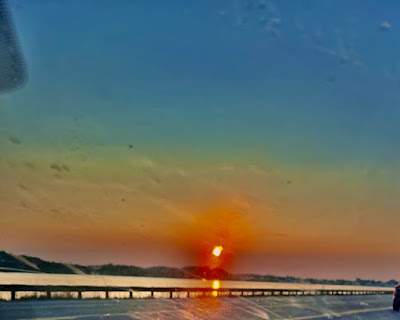Peonies
by: Mary Oliver
This morning the green fists of the peonies are getting ready
to break my heart
as the sun rises,
as the sun strokes them with his old, buttery fingers
and they open--
pools of lace,
white and pink--
and all day the black ants climb over them,
boring their deep and mysterious holes
into the curls,
craving the sweet sap,
taking it away
to their dark, underground cities--
and all day
under the shifty wind,
as in a dance to the great wedding,
the flowers bend their bright bodies,
and tip their fragrance to the air,
and rise,
their red stems holding
all that dampness and recklessness
gladly and lightly,
and there it is again--
beauty the brave, the exemplary,
blazing open.
Do you love this world?
Do you cherish your humble and silky life?
Do you adore the green grass with its terror beneath?
Do you also hurry, half-dressed and barefoot, into the garden,
and softly,
and exclaiming of their dearness,
fill your arms with the white and pink flowers,
with their honeyed heaviness, their lush trembling,
their eagerness
to be wild and perfect for a moment, before they are
nothing, forever?
Oliver really is seizing the day in this poem. She knows the peonies will last only a little while before they are claimed by the terror beneath the grass, so she doesn't waste a second. In the thin light of morning, she ventures out barefoot and collects them in her arms, hugs them to her body. She wants to love this part of the world, this short moment of beauty, before it vanishes.
I went for a walk this evening with my wife and puppy. The long light of late August stretched our shadows out before us, and the trees flashed their last gasps of summer green. As I looked up into their canopies, I saw the first hints of autumn. Gold, just tiny flecks of it in that lake of chlorophyll. Not enough to declare summer over just yet, but enough to send prospectors out to pan for more gold.
It is the last day of August. I know this. While the rest of the United States has been baking under a brutal heat wave, I've been waking up in the Upper Peninsula of Michigan to almost frost on the windows. I'll call it a heavy mist. Fall is breathing down our necks.
Change is on the way.
I'm not going to get all Dead Poets Society in this post. However, I feel that urgency to squeeze as much summer into these last warm days as possible. I took tomorrow off from work. I don't have to teach, either. Maybe I'll go for a long walk with my dog. Or maybe I'll sit in my backyard all afternoon with a good book, my journal, and a pen. I still haven't seen Oppenheimer yet.
Moving from one season into another is always difficult for me, because my life changes drastically. Summer to fall, the shift is all about getting back into the classroom. No more quiet nights at home. Those nights will now be filled with grading and lesson planning and calming the fears of anxious students.
There's something in me that stubbornly wants to hold onto the ice cream days and nights of summer. I want a few more scoops of vanilla topped with hot fudge, if you know what I mean. Of course, there's nothing stopping me from going to the grocery store and picking up some Ben & Jerry's in September or October. Even December, if I want.
But it won't be the same. Ice cream on a 90-degree July day tastes different than ice cream on a 15-degree December day.
So, I'm following Oliver's lead here. Gathering up all the summer I can. In fact, I just went outside barefoot to look at the full moon, and the air smelled like July and August still. Cut grass lingering. Everyone in my neighborhood, it seems, mowed their lawns today.
Poet Robert Herrick wrote: "Gather ye rosebuds while ye may, / Old Time is still a-flying; / And this same flower that smiles today / Tomorrow will be dying."
Mary Oliver wrote: "Do you cherish your humble and silky life?"
Saint Marty writes: "Maybe I should get some Cherry Garcia."














